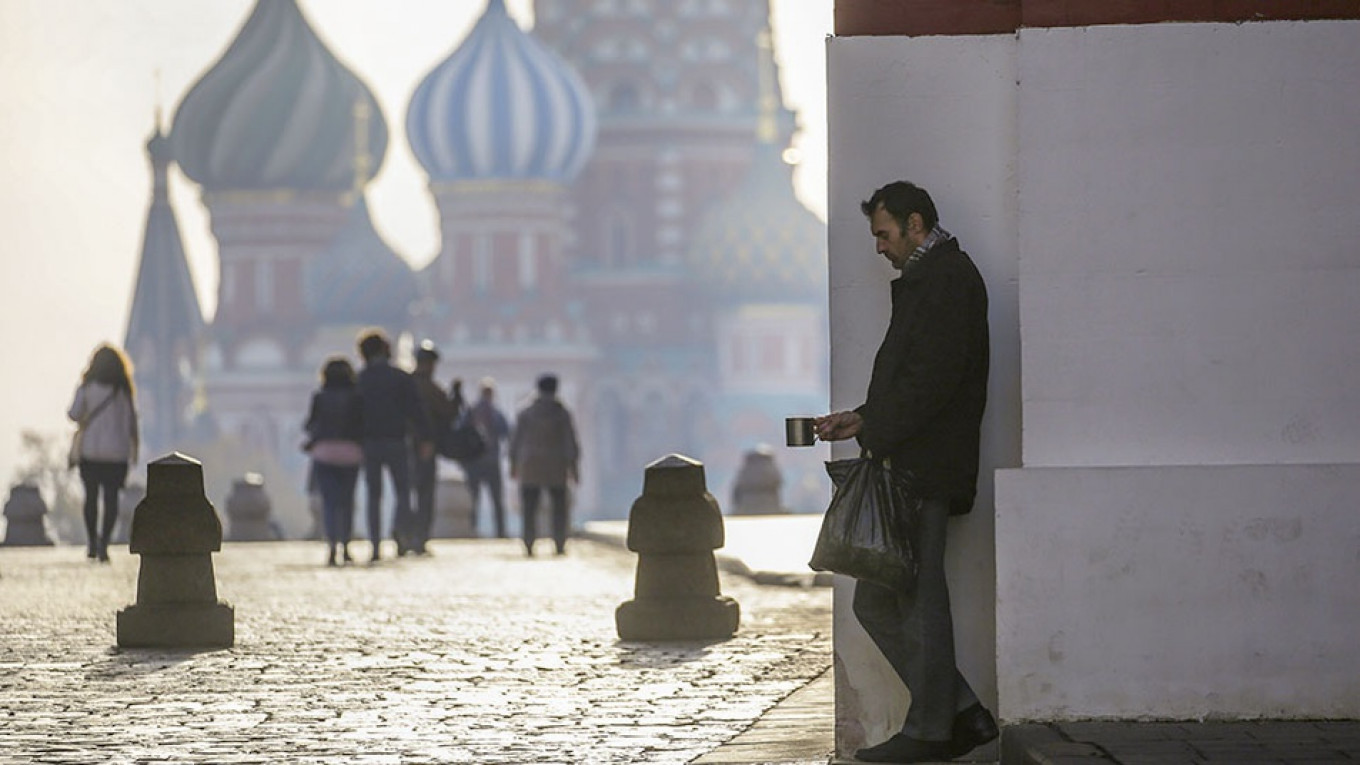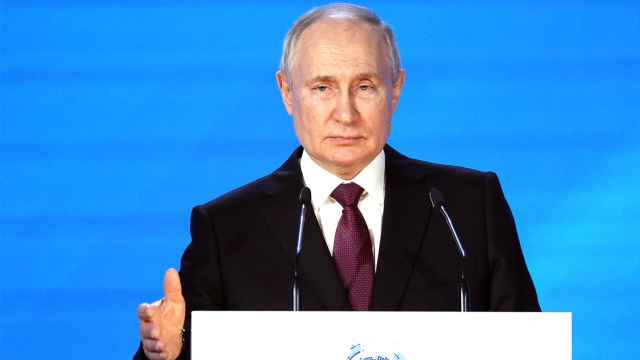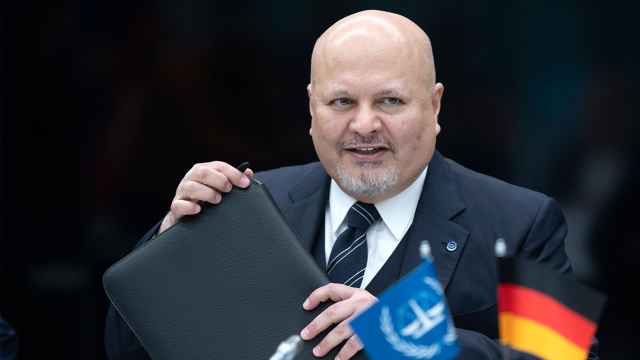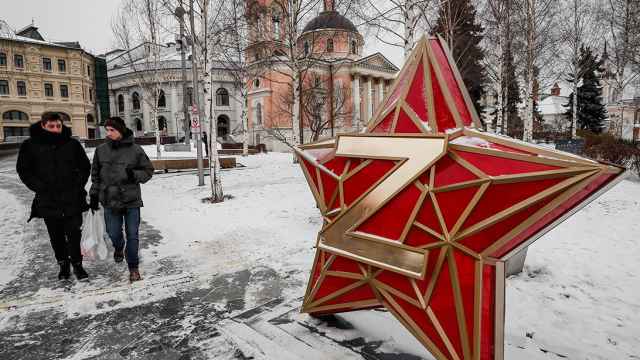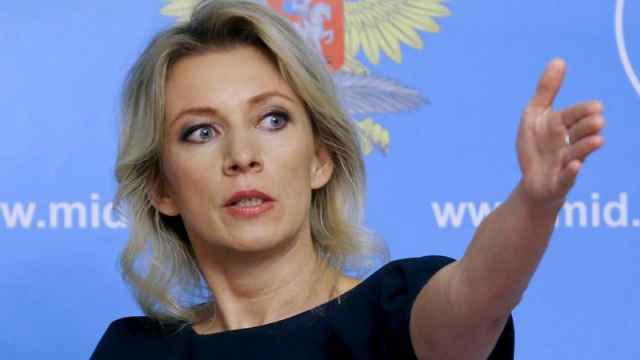Is Russia a poor country or a rich one? Members of the elite are arguing about it, and the answer is important for the country’s direction after the Putin era ends.
Last week, Anatoly Chubais, architect of the painful economic reforms implemented after the collapse of the Soviet Union, made a controversial speech at an economic forum in Moscow. In it, he argued that Russia is one of the world’s least energy efficient economies, in part because power is cheap and nobody bothers to conserve energy.
Chubais, who served under President Boris Yeltsin and now runs Rosnano, a government-funded innovation investment vehicle, is still a hate figure for many who see him as a ruthless neoliberal. So many interpreted his words as a call for energy price hikes, and he duly received a social-media bashing.
But his comments about energy prices weren’t what triggered the most interesting debate. It was his statement that “Russia is a poor country, a significant part of the population lives in poverty or in extreme poverty.”
That set off an angry reaction from Maria Zakharova, the Russian Foreign Ministry’s top spokesperson and one of the most visible public faces of President Vladimir Putin’s administration.
“Russia is an extremely rich country,” she wrote on Facebook. “As for why ‘a significant part of the population lives in poverty or in extreme poverty,’ I’d like a detailed answer from a person who has been a member of the government and a top manager of key parts of the national economy and industry for decades.”
This is, in part, an argument across generational lines: Chubais is 63 and Zakharova two decades younger.
Her generation of apparatchiks see Russia as an enormously wealthy land for which no project is too big. Winter Olympics in a subtropical area at a cost of $50 billion? Sure! Soccer World Cup? Check. Ambitious bridges, pipelines, foreign military campaigns? No problem. There’s always money to help allies, hurt enemies, and advertise the country’s greatness to the world.
To the Putin-era generation, the wealth was always there; it was merely mislaid and misused in the early post-Soviet years by incompetent or self-interested predecessors.
Chubais’s generation of civil servants see it differently. In a Facebook post, he responded, pointing out that in 1991:
The average salary was $12 per month, the ruble wasn’t convertible into other currencies, private enterprise was a crime, Sberbank, which held everyone’s savings, was bankrupt, the economy shrank by 10 percent to 12 percent a year, inflation was above 100 percent and the stores were empty.
By the time Zakharova started her career, Chubais wrote, most of those problems had been overcome thanks to the creation of a market economy and resurrection of private property.
Zakharova wasn’t convinced. She pointed out that she started at the Foreign Ministry in 1998, the year Russia defaulted on its domestic debt and devalued the ruble.
“You haven’t answered my perfectly specific question, why people live in poverty in a rich country,” she wrote.
Chubais parried with a sarcastic “surrender,” telling her: “I think you’re the best in your generation at twisting facts.” Zakharova ended the spat by sarcastically accepting the capitulation.
But this was more than a rare public confrontation between senior Russian officials of different generations: the substantive argument isn’t over.
Russia has to be governed two ways, as a poor country and as a rich one, because it is both. More than 19 million people, or 13 percent of the population, have incomes below the official subsistence minimum of about $150 a month. That’s extreme poverty by developed-world standards.
On the other hand, Russia’s resource wealth is enormous; it doesn’t just have the world’s biggest natural gas reserves, but also Europe’s biggest population of internet users and higher academic performance scores than half the developed world.
Running the country as a rich one is what Putin has done in recent years, spending freely on massive projects, showcase events and power projection. This was an investment in national pride, a motivational exercise as much as anything else.
For Zakharova, a propaganda professional, this exercise is the meaning of her work; for Putin, it has taken precedence over more mundane goals. Even though economic growth has run out of gas, there are still plenty of resources available to the ruling elite to continue dazzling the world, or at least trying to.
Everyone realizes the power and the glitter are, to some extent, illusory — but every big project causes a feeding frenzy, because the money is real to its recipients. For the rest, there’s an enormous and well-fed security apparatus that will keep them in check.
Governing Russia as a poor country, one in which there isn’t enough of everything to go around, would be a completely different exercise.
Concerns such as energy efficiency would come to the fore. So would tackling poverty and inequality. Big feel-good projects would need to be shelved so as to address Russia’s painfully low ranking by education spending. The government’s rhetoric would have to return to the 1990s, when the idea was for Russia to fight for normalcy rather than dominance. Humility — some would say self-humiliation — would be back.
There probably exists a happy middle ground somewhere, but so far, post-Soviet Russia has only known the two extremes — focusing either on the bread or the circuses.
Striking the right balance will be a key issue for the country’s elite in the post-Putin era. It will need to decide what kind of country has emerged from the three post-Soviet decades — an impoverished one, crying out for more efficiency in the face of scarcity, or a rich and proud one on a path toward greatness.
Leonid Bershidsky is a Bloomberg Opinion columnist covering European politics and business. He was the founding editor of the Russian business daily Vedomosti and founded the opinion website Slon.ru. The views expressed in opinion pieces do not necessarily reflect the editorial position of The Moscow Times.
A Message from The Moscow Times:
Dear readers,
We are facing unprecedented challenges. Russia's Prosecutor General's Office has designated The Moscow Times as an "undesirable" organization, criminalizing our work and putting our staff at risk of prosecution. This follows our earlier unjust labeling as a "foreign agent."
These actions are direct attempts to silence independent journalism in Russia. The authorities claim our work "discredits the decisions of the Russian leadership." We see things differently: we strive to provide accurate, unbiased reporting on Russia.
We, the journalists of The Moscow Times, refuse to be silenced. But to continue our work, we need your help.
Your support, no matter how small, makes a world of difference. If you can, please support us monthly starting from just $2. It's quick to set up, and every contribution makes a significant impact.
By supporting The Moscow Times, you're defending open, independent journalism in the face of repression. Thank you for standing with us.
Remind me later.



